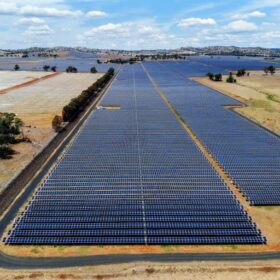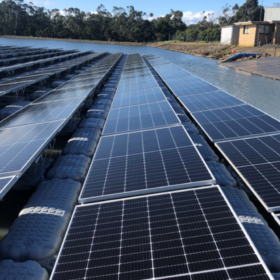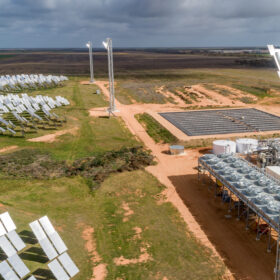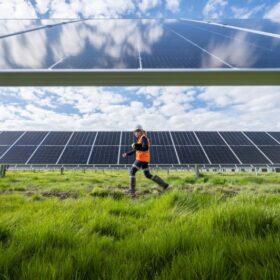Inaccurate supply forecasts, along with unreached output targets by renewable generators, can result in power system instability and higher operating costs, particularly in energy markets like that of Australia. As part of the Australian Renewable Energy Agency’s (ARENA) Advancing Renewables Program, this twelve-month pilot provided a solution to this industry need.
Such data can be especially useful for Australian wind and solar farms which are penalised for failing to meet required output levels in the National Electricity Market (NEM). The pilot was trialed at Infigen Energy’s Lake Bonney Wind Farm 2 and 3, a 198 MW project powered by Vestas in South Australia.
The data was used by the Australian Energy Market Operator (AEMO) for real-time dispatch decisions and demonstrated increased accuracy when compared to the current Australian Wind Energy Forecasting System’s (AWEFS) five-minute forecast.
“Thanks to Vestas and Utopus Insights’ self-forecasting data, we expect we will achieve cost savings at Lake Bonney 2 and 3, assets with 198 MW of nameplate capacity,” says Matt Dickie, General Manager, Operations, Infigen Energy. “We will therefore continue to utilise this energy data solution at Lake Bonney Wind Farm 2 and 3.”
The solution applies advanced data science techniques to high-resolution wind turbine SCADA data, granular short-term hyper-local weather forecasts, and meteorological data to deliver greater accuracy in energy forecasts.
Through the provision of such information, both AEMO and the market can expect a more accurate and transparent forecast of supply, system constraints and pricing and ultimately increased grid stability.
“With a decrease in operating expenses coupled with a greater proportion of low-cost renewables in the energy mix, the wholesale cost of energy is expected to reduce, benefitting the Australian consumer,” says Peter Cowling, Head of Vestas Australia and New Zealand. “Furthermore, as a result of the introduction of the Five-Minute Settlement rule in Australia’s National Energy Market, the need for energy solutions like our accurate short-term forecasting will become more apparent.”
“The convergence of renewable energy and machine learning has the potential to positively impact the world and radically alter the way we look at the energy sector in the future – where ‘smart’ renewable energy is the most sustainable way forward,” said Chandu Visweswariah, CEO, Utopus Insights.
“From an energy market standpoint, improved power output accuracy allows stakeholders to sharpen intra-day energy bid strategies, making renewable energy more reliable, and profitable,” said Shekhar Kamath, General Manager, Sales, Utopus Insights.
“Self-forecasting allows renewable generators to take advantage of the wealth of operational data produced by our assets. This results not only in financial savings but also in improved dispatch for the broader market. The improved efficiency of our assets produces savings for consumers and positions Infigen to invest in additional low-cost renewable generation,” said Matt Dickie, General Manager, Operations, Infigen Energy.
Discover more about the benefits of the Vestas and Utopus Insights self-forecasting trial below:
– https://arena.gov.au/knowledge-bank/spotlight-short-term-forecasting-trial-on-the-nem/
– https://arena.gov.au/knowledge-bank/improving-accuracy-of-short-term-forecasting-in-the-nem/
-https://www.utopusinsights.com/power-forecasting
-https://arena.gov.au/projects/lake-bonney-stages-2-3/






By submitting this form you agree to pv magazine using your data for the purposes of publishing your comment.
Your personal data will only be disclosed or otherwise transmitted to third parties for the purposes of spam filtering or if this is necessary for technical maintenance of the website. Any other transfer to third parties will not take place unless this is justified on the basis of applicable data protection regulations or if pv magazine is legally obliged to do so.
You may revoke this consent at any time with effect for the future, in which case your personal data will be deleted immediately. Otherwise, your data will be deleted if pv magazine has processed your request or the purpose of data storage is fulfilled.
Further information on data privacy can be found in our Data Protection Policy.